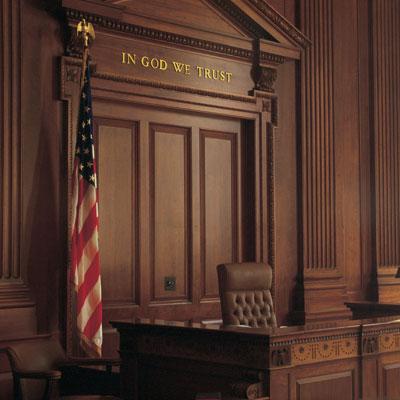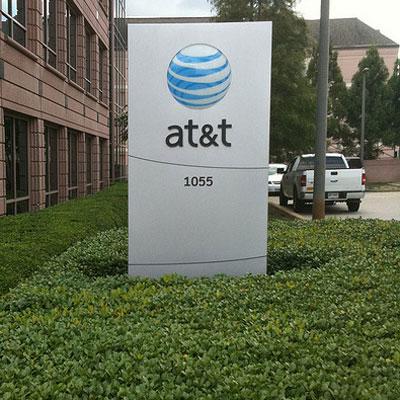5 Things You Need To Know About The AT&T-Time Warner Merger Trial

The M&A Battle Is On
The decision AT&T has been waiting for is just weeks away. The telecom giant in 2016 announced its intention to buy entertainment powerhouse Time Warner for $85 billion, but the deal has faced scrutiny ever since. The U.S Department of Justice put forward a lawsuit to block the deal in November, and the trial is slated to begin Monday.
The trial marks the first major U.S. media merger to go to court in decades. The outcome will set a precedent for the rest of the telecom industry in terms of what will be allowed from an antitrust enforcement perspective, and what will be denied. AT&T, for its part, has pushed hard against the Justice Department's claims that the deal will remove competition from the industry and has said the Justice Department is being "politically motivated" when it initiated the lawsuit.
With a slew of arguments and theories coming from both sides, here are five things you need to know ahead of the start of the trial.

Setting The Stage
Following some back and forth, including a so-called false report that the trial is being delayed, the judge in charge of the proceedings has said that the AT&T-Time Warner merger trial will start on time Monday. District Judge Richard Leon, who had been assigned to the Comcast-NBCUniversal challenge before the Justice Department settled with Comcast, will be overseeing the trial in the U.S. District Court for the District of Columbia.
According to Judge Leon, the first two days of the trial will deal with objections to exhibits, with opening arguments to begin Wednesday. Judge Leon expects the trial to last six to eight weeks, as opposed to previous reports suggesting it could last four to six weeks.

The Justice Department's Argument
The Justice Department surprised the industry in November when it came out against the proposed AT&T-Time Warner merger. Its stance is that the merged company’s distribution ability and content assets would give it too much leverage in negotiations with the rest of the industry. The department also believes that combined with Time Warner, AT&T could demand higher licensing fees from other cable and satellite firms for popular programming, and that those raised prices would be passed on to consumers at an estimated cost of 45 cents a month, or a combined $436 million annually for cable and satellite subscribers, the agency estimated.
Many in the telecom and entertainment industry believed that the Republican-led Justice Department, under its antitrust chief Makan Delrahim, would be less critical of the deal from an antitrust perspective, even though now-President Trump criticized the deal on the campaign trail, saying it would put "too much power into the hands of two few."

AT&T's Side Of The Story
Dallas-based AT&T is pushing back against the Justice Department's claims and has said that it rejects the idea that buying Time Warner would violate antitrust law. AT&T also said that the deal shouldn't result in higher prices for consumers, but if it did, it would be a "remarkably small alleged price increase." Finally, AT&T said it had no plans to withhold content from its cable competition, but rather it would make its programming as widely available as possible. The deal would also create a more formidable competitor for consumers against Netflix, Amazon and Google, according to AT&T.
The deal has been fraught with political undertones since 2016. AT&T in 2018 suggested that antitrust chief Delrahim's choice to file a lawsuit to block the deal was motivated by politics. The telecom is being defended by Daniel Petrocelli, a Los Angeles-based lawyer.

If The Deal Is Blocked
AT&T is attempting to pull off an acquisition that is similar -- but not identical -- to Comcast's NBCUniversal merger. But the deal's massive size is one of the issues for this so-called vertical integration. The conclusion of the trial will determine whether consolidation between distribution and media providers of this magnitude will be allowed moving forward.
The telecom industry is largely holding its breath because mergers like this will help legacy carriers compete better with content providers. Should the deal be denied, some industry pundits believe a player like Google may make a bid for Time Warner or similar content providers, which would be a blow to the telecom giants who have been trying to get into the content arena in recent years. The outcome will signal whether the courts will allow vertical consolidation of leading media production and distribution companies.

If It Is Passed
If approved, an AT&T/Time Warner tie-up would create a telecom and entertainment giant that offers AT&T’s nationwide network with Time Warner’s robust portfolio of popular movies and television programs, including ’Game of Thrones’ on HBO, CNN for live news, and college and professional basketball on TNT.
Telecom industry analysts are predicting that similar to the Comcast/NBCUniversal merger, AT&T, despite its rejection of the claim, would be able to raise prices to competing cable and satellite providers that seek access to its programming, which could pass the higher bills onto their own customers. It could also stop telecom competition from providing free HBO as a way to gain new subscribers, industry pundits say.